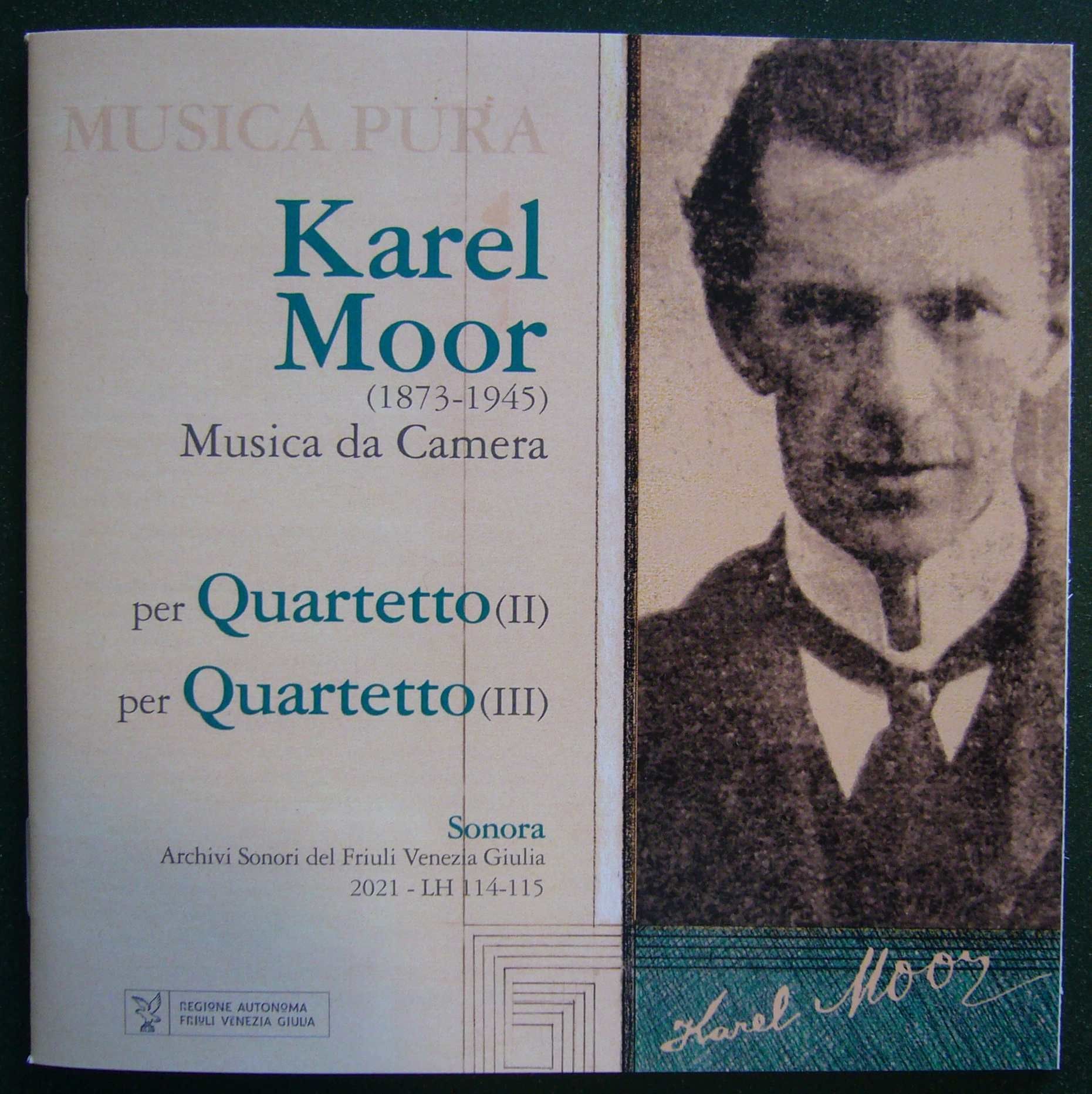Karel Moor
Karel Moor was born on 26 December 1873 in Lazne Belohrad (Czech Republic). He first studied at the organ school in Prague under Karel Strecker, Frantisek Blazek, Karel Knittl and Augustin Vyskocil. Later he studied vocal performance in Vienna, then in Trieste.
Karel Moor first worked as a vocal reacher in Pardubice and there started to compose. After stops in again Prague and Trieste he became the conductor of the Czech Philharmonic and later of the National Theater in Brno. In 1912 the villa of Karel Moor burned down and the fire destroyed all the belongings to work in his profession as well as most of his compositions. To overcome this financial crisis Karel Moor accepts an appointment as conductor of "Choir Zoranic" in Zadar (Croatia), but quit the position shortly after due to personal and professional problems. He was then offered the position as choir master of the "Singer's Society of Spanish Jews" in Belgrade, but the outbreak of World War I ended the short tenure. Karel Moor fled from the hostile action first to Stip (Macedonia) where he worked in a school. He got wounded during a trip to Skopje, recovered at a sanatorium in Bohemia and then worked first as a Kapellmeister in Braunau am Inn, then in Ostrava, Ljubljana, Sinje, Split and finally in 1922 in Sarajevo. But Karel Moor was physically and mentally debilitated and had still financial problems, which led to the termination of his appointment in Sarajevo as well and he returned to Prague in 1923. There he worked at the newly opened Hvezda Cinema, later became bandmaster in Smichov (a district of Prague) and worked in the archive of the Czechoslovak Radio. In 1933 Karel Moor was appointed an honorary citizen of the town of Lazne Belohrad.
Karel Moor died on 30 March 1945 in Prague.
The work catalogue of Karel Moor lists more than 200 compositions. There are 10 operas like "William Ratcliff" (1904) or "The last chord" (1929), 11 operettas like "Mr. Professor in hell" (1907) and ballets. Among the orchestral works are 2 symphonic dances, a concerto for cembalo and a Romance and a Serenata No.2 for violin and orchestra. Karel Moor also composed 3 string quartets (No.1 and 2 in 1902, No.3 in 1915), a Suite for string quartet, a Piano trio, "5 Fantasies on national themes" for brass quintet and other chamber music. Among his vocal works are many songs, choral works, cantatas, masses and a Requiem.
In my possession is the autograph manuscript of the "String quartet No.1" (1902) by Karel Moor. The work dates from the time when the composer was working in Trieste, his second visit after his studies there before. While in Italy he was called "Carlo Moor", so the manuscript shows this name. The manuscript also bears a dedication to Alberto Castelli (1852-1912), who was a violinist and second violin in the famous Quartetto Heller. In his autobiography "V dlani osudu" Karel Moor writes that Alberto Castelli commissioned this work, but not for himself but for a different string quartet, the "Quartetto Triestino". So the first performance of the work took place at the Casino Schiller in Trieste on 9 May 1902. It was premiered by the Quartetto Triestino which was formed by Augusto Jancovich, Giuseppe Viezzoli, Eugenio Ballarini and Augusto Fabbri.
The work was recorded by four members of the ensemble Lumen Harmonicum in 2020 using also my manuscript for the performance. The recording was released a year later via the label Sonora:

